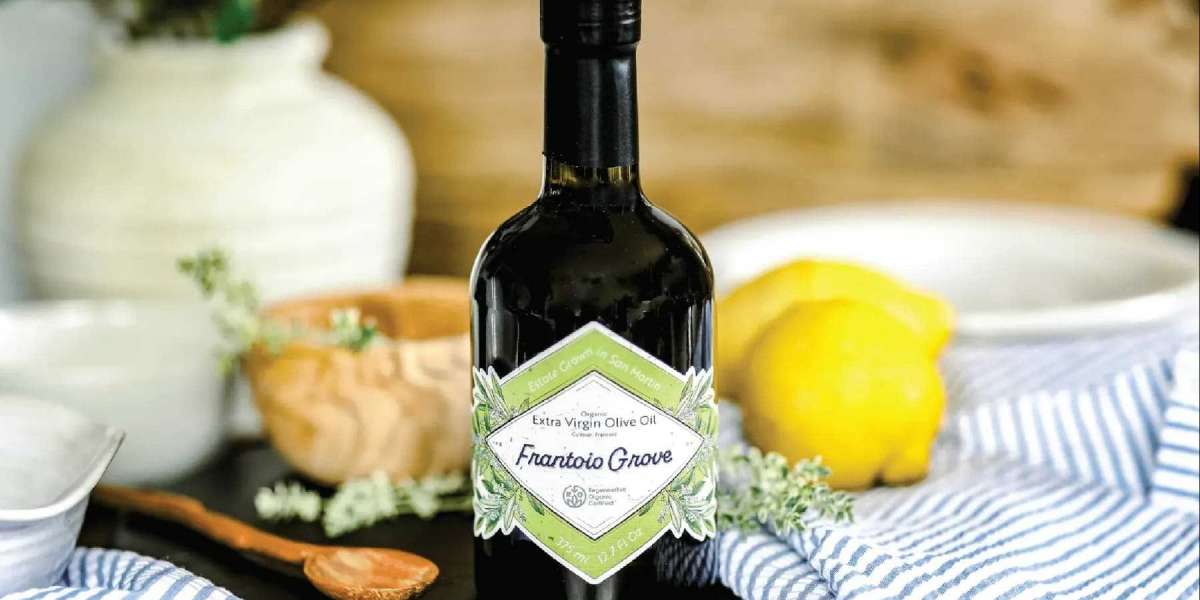In recent years, the demand for organic extra virgin olive oil has surged, as consumers are becoming more health-conscious and environmentally aware. This golden liquid, extracted from the first pressing of olives, not only enhances culinary dishes but also offers numerous benefits for skincare. However, with a plethora of options available in the market, selecting the best organic extra virgin olive oil can be overwhelming. This article serves as a comprehensive guide to help individuals navigate the intricacies of choosing the finest olive oil for both cooking and skincare purposes.
Understanding the Basics: What is Organic Extra Virgin Olive Oil?
Before diving into the selection process, it is essential to understand what makes olive oil "organic" and "extra virgin." Organic olive oil is produced from olives that have been grown without the use of synthetic pesticides, herbicides, or fertilizers. This organic farming method not only supports environmental sustainability but also ensures that the oil retains its natural flavors and health benefits.
Extra virgin olive oil, on the other hand, refers to the highest quality of olive oil available. To qualify as extra virgin, the oil must meet specific standards, including a low level of acidity (less than 0.8%) and a superior taste profile. This is achieved through cold-pressing the olives, which preserves the oil's flavor and beneficial nutrients. Thus, when searching for organic extra virgin olive oil, one is seeking a product that embodies both quality and health-conscious principles.
The Importance of Authenticity: Look for Certifications
When choosing organic extra virgin olive oil, authenticity is paramount. The olive oil industry is fraught with mislabeling and adulteration, which can lead consumers to purchase lower-quality products. To ensure that the oil is genuinely organic and of high quality, individuals should look for certifications on the label.
Certifications from reputable organizations, such as the United States Department of Agriculture (USDA) or the European Union Organic logo, indicate that the product has met stringent organic farming standards. Moreover, certifications from olive oil associations can provide additional assurance of quality. For instance, the International Olive Council (IOC) sets rigorous standards for olive oil quality, and oils that meet these standards are often labeled accordingly.
By prioritizing certified organic extra virgin olive oil, consumers can make informed choices and avoid the pitfalls of misleading labels.
Consider the Origin: Regional Factors Matter
The origin of olive oil plays a significant role in its flavor profile and quality. Different regions produce olives with distinct characteristics, influenced by factors such as climate, soil quality, and traditional harvesting methods. For instance, Italian olive oils are often fruity and peppery, while Spanish varieties may offer a more robust flavor.
When selecting organic extra virgin olive oil, individuals should consider trying oils from various regions to discover personal preferences. Moreover, oils from specific regions can carry unique health benefits due to the local climate and olive varieties. For example, oils produced in the Mediterranean region are known for their high polyphenol content, which is associated with heart health and anti-inflammatory properties.
Additionally, purchasing oils that are locally sourced can also support sustainable farming practices and reduce the carbon footprint associated with transportation. Therefore, exploring the origin of the olive oil can enhance both the culinary experience and the ethical considerations of the purchase.
Assessing the Packaging: Light and Air Protection
The packaging of olive oil is another critical factor that can impact its quality. Olive oil is sensitive to light, heat, and air, all of which can lead to rancidity and a decline in flavor and nutritional value. Therefore, it is essential to choose organic extra virgin olive oil that comes in dark glass bottles or tins, as these materials provide protection from light exposure.
Furthermore, consumers should look for oils that are sealed tightly to minimize air exposure. Once opened, olive oil should be stored in a cool, dark place to preserve its freshness. It is advisable to use the oil within a few months after opening to enjoy its full flavor and health benefits.
By paying attention to packaging, individuals can ensure that they are purchasing a product that maintains its quality over time.
Evaluating Flavor and Aroma: A Sensory Experience
One of the most enjoyable aspects of choosing organic extra virgin olive oil is the sensory experience it offers. Flavor and aroma can significantly vary based on the type of olives used, the extraction process, and the region of origin. When selecting olive oil, it is beneficial to engage in a tasting experience, if possible.
A good quality organic extra virgin olive oil should have a fresh, fruity aroma with hints of grass, herbs, or other natural flavors. Upon tasting, it may exhibit a balance of bitterness and pepperiness, which are positive indicators of high polyphenol content. Conversely, a rancid or musty smell signifies that the oil is not of good quality and should be avoided.
For those who are new to olive oil tasting, it can be helpful to participate in local olive oil tastings or workshops. These experiences can provide insights into the nuances of different oils and help individuals develop their palates. Ultimately, the choice of olive oil should align with personal taste preferences and the intended culinary applications.
Exploring Uses in Cooking and Skincare
Organic extra virgin olive oil is a versatile ingredient that can enhance both cooking and skincare routines. In the kitchen, it can be used for sautéing, roasting, drizzling over salads, or as a dip for bread. Its high smoke point makes it suitable for various cooking methods, while its rich flavor can elevate simple dishes to gourmet experiences.
In skincare, organic extra virgin olive oil serves as a natural moisturizer due to its hydrating properties. It can be applied directly to the skin as a moisturizing agent or used as a base for DIY skincare products. Olive oil is rich in antioxidants and healthy fats, making it beneficial for maintaining skin elasticity and combating signs of aging. Additionally, it can be used in hair care to nourish and hydrate strands, promoting a healthy shine.
By understanding the diverse applications of organic extra virgin olive oil, individuals can maximize its benefits in their daily lives.
Conclusion
Choosing the best organic extra virgin olive oil involves a careful consideration of authenticity, origin, packaging, flavor, and intended use. By prioritizing high-quality oils that are certified organic, individuals can enjoy the numerous health benefits associated with this liquid gold. Whether used in cooking or skincare, organic extra virgin olive oil is a versatile and valuable addition to any lifestyle.
As you embark on your journey to find the perfect olive oil, remember that quality matters. Explore the exquisite flavors and health benefits of premium organic extra virgin olive oil. For those seeking exceptional quality, Frantoio Grove offers an array of carefully selected oils that embody the essence of this Mediterranean treasure. Elevate your culinary and skincare experiences today with the richness of organic extra virgin olive oil!







